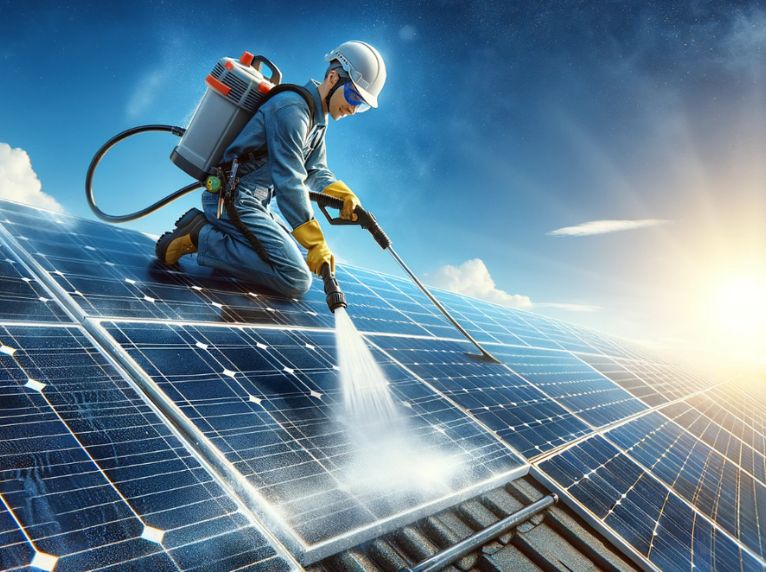Contents
Solar panels are a popular and eco-friendly way to generate electricity, but they require regular maintenance to operate at peak efficiency. In this article, we will explore what solar panels are, how they work, and why they need cleaning. We will also discuss whether pressure washing is a safe cleaning method, the risks involved, and alternative cleaning methods. We will provide tips on how to safely clean solar panels, how often they should be cleaned, the benefits of keeping them clean, signs of dirt buildup, common cleaning mistakes to avoid, and preventive measures to keep them free from debris. Join us as we dive into the world of solar panel maintenance and learn how to maximise their performance.
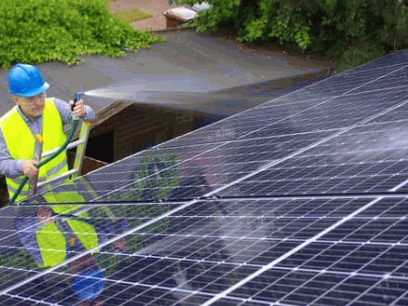
What Are Solar Panels?
Solar panels are an essential component of a solar energy system, responsible for harnessing sunlight and converting it into electricity. They are commonly used in both residential and commercial installations.
These panels work by absorbing sunlight through photovoltaic cells, which generate a flow of electrons and create an electric current. There are different types of solar panels, including monocrystalline, polycrystalline, and thin-film panels, each with its own set of advantages and efficiencies. The overall goal of solar panels is to reduce dependence on non-renewable energy sources and decrease carbon emissions, contributing to a more sustainable future.
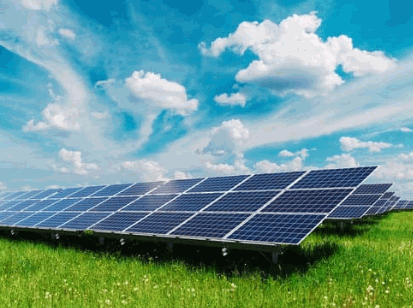
How Do Solar Panels Work?
Solar panels work by absorbing sunlight through photovoltaic cells, which then generate direct current (DC) electricity. This electricity is converted into alternating current (AC) by an inverter for use in homes and businesses.
Photovoltaic cells, also known as solar cells, are typically made of semiconductor materials that release electrons when exposed to sunlight. These free electrons create an electric current, which is then collected and channeled through conductive materials within the solar panel. The inverter is a crucial component that transforms the DC electricity produced by the solar panels into AC electricity, which is the standard form of electricity used in households and commercial buildings.
The efficiency of solar energy systems depends on various factors such as the angle of sunlight, weather conditions, and the quality of the solar panels and inverters. Solar panels with higher efficiency ratings can generate more electricity from the same amount of sunlight, maximising the overall performance of the system.
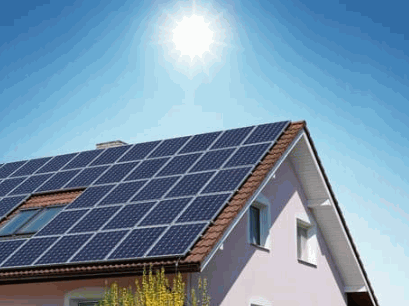
Why Do Solar Panels Need Cleaning?
Solar panels need cleaning to maintain optimal performance by removing accumulated dirt, dust, and debris that can block sunlight absorption. Regular cleaning ensures maximum energy production from the solar system.
When dirt and debris cover the surface of the solar panels, they prevent sunlight from reaching the photovoltaic cells, which are responsible for converting sunlight into electricity. This obstruction can significantly reduce the efficiency of the panels and decrease the amount of energy they are able to generate.
If left uncleaned for an extended period, the accumulation of dirt can lead to permanent damage to the panels, impacting their longevity and performance. To ensure the longevity and efficiency of your solar panel system, regular cleaning is essential.
Can You Pressure Wash Solar Panels?
Whilst pressure washing can be effective for cleaning various surfaces, it is not recommended for solar panels due to the risk of damage. High-pressure water streams can harm the panels and their delicate components.
Pressure washing might lead to cracks or scratches on the surface of the solar panels, which can compromise their efficiency over time.
Alternative cleaning methods such as using a gentle brush with mild soap and water or utilising specialised solar panel cleaning kits are safer options that ensure the panels are cleaned without causing any harm. These methods are designed to maintain the integrity of the panels and prevent any debris buildup that could obstruct sunlight absorption. Regular maintenance and monitoring of the panels’ condition play a crucial role in preserving their longevity and performance.
Check out: What Is Power Washing
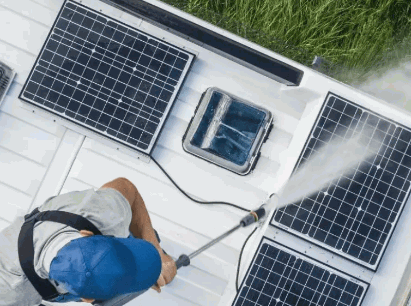
What Are The Risks Of Pressure Washing Solar Panels?
The risks of pressure washing solar panels include potential damage to the glass surfaces, frames, and electrical components of the panels. Safety hazards may arise from improper handling of high-pressure equipment.
Structural damage can occur when too much pressure is applied, leading to cracks in the glass or weakening the frame, which can compromise the panel’s efficiency and lifespan. Water entering the electrical components due to high-pressure washing may cause short circuits or other malfunctions, posing electrical hazards.
Caution is crucial when considering pressure washing solar panels. It is recommended to consult with a professional or manufacturer to ensure proper cleaning methods are followed, minimising the risks associated with this process.
What Are The Alternatives To Pressure Washing Solar Panels?
- Alternative methods to pressure washing solar panels include gentle hosing with water, manual cleaning with a soft bristle brush, or using mild cleaning solutions to remove stubborn dirt and debris.
These non-invasive cleaning techniques offer a safer approach to maintaining the efficiency of your solar panels while avoiding potential damage that harsh cleaning methods can cause.
- Gentle hosing with water is a simple yet effective way to rinse off surface dust and grime without the risk of scratches or impact on the panel’s performance.
- Manual cleaning with a soft bristle brush allows for targeted removal of tougher stains or residues, ensuring a thorough clean without abrasive actions.
- Using mild cleaning solutions like a mixture of vinegar and water can dissolve organic build-up gently, preserving the longevity of your solar panels.
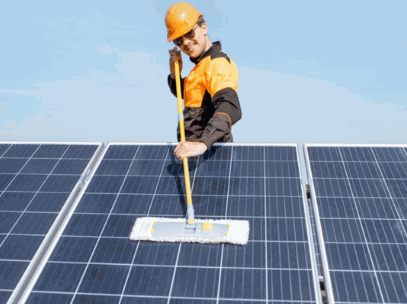
How To Safely Clean Solar Panels?
To safely clean solar panels, follow recommended safety precautions, use appropriate materials like a soft bristle brush or microfiber scrubber, and avoid harsh chemicals that can damage the panels.
Before starting the cleaning process, it is important to ensure that the panels are disconnected from the power source to avoid any potential electrical hazards. It is advisable to clean the panels early in the morning or late in the evening to prevent the cleaning solution from drying too quickly in the sun.
When choosing a cleaning solution, opt for a gentle mixture of soap and water or a specialised solar panel cleaner. Always test the cleaning solution on a small inconspicuous area of the panel first to check for any adverse reactions.
Remember to wear appropriate protective gear, such as gloves and safety goggles, while cleaning the panels to prevent any injuries. Use a gentle touch and avoid applying excessive pressure to the panels, as this could lead to scratches or other damage.
What Tools And Materials Do You Need?
The tools and materials needed to clean solar panels include a soft bristle brush, clean water, a gentle hose, and possibly a microfiber scrubber for tougher stains.
- Safety equipment such as gloves and protective eyewear are crucial to prevent any injuries while working with cleaning solutions or standing on ladders.
- Having a squeegee can help in removing excess water without leaving streaks on the panels, ensuring a pristine finish.
- A telescopic pole with an adjustable length enables you to reach panels in higher areas safely and efficiently.
- Using a mixture of mild soap and water can effectively dissolve dirt and grime without damaging the panel’s surface.
- A fabric cloth or chamois can be used for a final polish to achieve a spotless and gleaming appearance on the panels.
What Are The Steps To Cleaning Solar Panels?
- The steps to cleaning solar panels involve using soapy water or tap water with a soft brush to gently scrub the surfaces, followed by rinsing with clean water to remove any residue.
- After ensuring the panels are cool to the touch, start by preparing a mixture of soapy water using a mild detergent specifically designed for solar panels. Dip the soft brush into the solution and begin scrubbing the panels in a gentle circular motion, focusing on areas with visible dirt or grime. Take care not to use abrasive cleaning tools that could scratch the panels.
- Once the panels have been thoroughly scrubbed, rinse them using a hose or a bucket of clean tap water. This step helps to remove any leftover soap residue that could affect the panel’s efficiency.
How Often Should Solar Panels Be Cleaned?
Solar panels should be cleaned regularly to prevent the accumulation of dirt and debris that can reduce energy production. New installations may require more frequent cleaning initially.
The recommended frequency for cleaning solar panels often depends on various factors. For instance, solar panels in regions with high levels of dust or pollution may need to be cleaned more frequently compared to those in cleaner environments. Older installations might require more attention as ageing panels can be more prone to dirt buildup.
It is advisable to conduct a visual inspection regularly to check for any visible dirt or shading on the panels. Routine maintenance can help prolong the lifespan of the solar panels and ensure optimal energy generation efficiency.
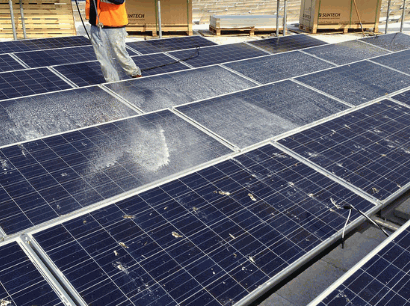
What Are The Benefits Of Keeping Solar Panels Clean?
Keeping solar panels clean enhances their performance, maximizes energy production, and can result in long-term financial benefits through improved efficiency and output.
When solar panels get dirty, dust, bird droppings, and other debris can accumulate on the surface, blocking sunlight and reducing the amount of energy that can be converted. Regular cleaning not only ensures that panels receive optimal sunlight for energy generation but also helps prolong the lifespan of the system.
Clean panels operate more effectively, generating more electricity for your household or business needs. This increased energy production can translate into significant cost savings on electricity bills over time, making the initial investment in solar panels even more worthwhile.
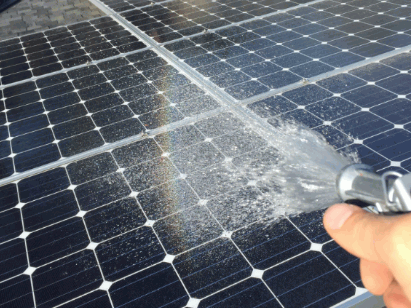
What Are The Signs Of Dirty Solar Panels?
Signs of dirty solar panels include reduced energy output, visible dirt or stains on the surface, and shadows from debris blocking sunlight. Monitoring performance can help identify cleaning needs.
It is crucial to keep an eye on the overall energy production of your solar panels to ensure optimal performance. If you notice a drop in energy output over time, it could be an indication that your panels need cleaning. Inspect the surface of the panels regularly for any visible dirt or stains as these can hinder sunlight absorption. Shadows cast by debris on the panels can also be a clear sign that cleaning is necessary to maintain efficiency.
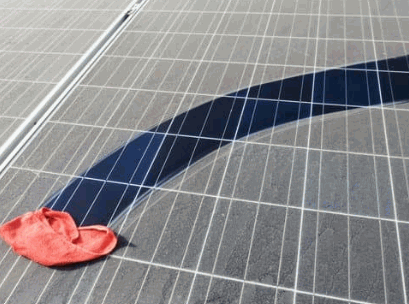
What Are The Common Mistakes When Cleaning Solar Panels?
Common mistakes when cleaning solar panels include using abrasive materials, harsh chemicals, or high-pressure washing methods that can damage the panels and compromise their performance.
It’s crucial to ensure safe practices and use gentle materials to avoid unintentional harm to the panels. Protecting the surface of the solar panels is essential for maintaining their efficiency and lifespan. By opting for soft brushes, sponges, or cloth along with mild soapy water, you can effectively remove dirt and grime without risking scratches or chemical damage. Understanding the proper cleaning techniques such as rinsing thoroughly and avoiding direct sunlight during the cleaning process can significantly impact the performance and longevity of solar panels.
How Can You Prevent Dirt And Debris From Accumulating On Solar Panels?
To prevent dirt and debris build-up on solar panels, consider installing them at an angle for self-cleaning rainwater runoff, trimming nearby trees to minimise shading, and regular inspection for potential obstructions.
Another crucial factor to maintain optimal solar panel performance is to ensure proper landscaping around the installation site. Landscaping considerations involve keeping the area clean from fallen leaves, bird droppings, and other debris that could accumulate on the panels. This not only enhances the efficiency of the panels but also prolongs their lifespan.
Along with strategic installation and landscaping, establishing a routine monitoring schedule is essential. Regular monitoring allows you to quickly address any issues that may arise, such as bird nests or dust accumulation, before they impact the panel’s efficiency. By incorporating these preventive measures into your solar panel maintenance routine, you can maximise energy production and overall system performance.
